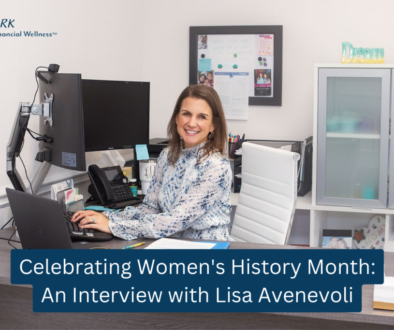The Importance of Tax Planning at the Mid-Point of Your Career
By the mid-point of your career, it is critical to have a financial plan that focuses on your goals and helps you achieve flexibility. Having a plan helps you realize the lifestyle you want now while keeping longer-term achievements on track. But an overlooked area of your plan is how much of your income you get to keep after taxes.
As income increases, it becomes even more essential to ensure that you are optimizing your tax planning. And a good tax plan doesn’t just happen in April every year. Proactive planning throughout the year, and a strategic plan that takes a multi-year view, can make a big difference in keeping your lifetime taxes as low as possible.
Moves you make now can create more income and greater tax efficiency now, and during your retirement years. No matter what your goal is – early retirement, optional-work, or one spouse temporarily or permanently leaving the workforce, focusing on effective tax planning can get you there sooner.
Tax-Advantaged Savings and Investing Vehicles
Retirement Savings
Maximizing tax-advantaged savings tools should be at the top of your tax planning list. A thorough review of tax-deferred (Traditional IRA, Annuity, etc.) vs tax-free (Roth IRAs) savings options should be part of your overall financial plan. Many factors come into play when choosing among these options -current income, future projected income, retirement plans and lifestyle, age of each spouse, beneficiary income and age, etc. A qualified financial advisor can help you determine which savings vehicles will provide the most tax-efficient planning strategy for you today, and in the future.
Contributing the maximum amount to a 401(k) of $22,500 in 2023 (plus the catch-up amount of $7,500 for those 50+) may have an additional benefit this year. Asset values are lower, so your contribution will have more purchasing power. Keep contributions steady and consistent (bi-weekly, monthly or quarterly, for example), so you can minimize the impact of any further declines.
If one spouse is no longer working, don’t neglect retirement savings in a spousal IRA. This is a regular IRA account in the non-working spouse’s name. It circumvents the IRS rule that you must have income to contribute to an IRA.
Healthcare Savings
A Healthcare Savings Account (HSA) is a tax-advantaged way to put money away in an investment account for health-related spending in retirement. Qualified spending isn’t just on doctor visits or medical needs – it also includes long-term care policy premiums, so starting an account now is a great way to cover these premiums later.
HSAs are triple-tax-advantaged. This means that money you put away reduces income in the year of the contribution – in 2023, that’s $3,850 for self-only and $7,750 for families, plus $1,000 catch up for those over 50. The money grows tax-free, and qualified withdrawals are also tax-free.
The HSA requires a high-deductible health insurance plan, so you’ll need to review your coverage needs and ensure your plan meets the criteria.
Education Savings
Savings in a 529 plan grow tax-free, and qualified withdrawals are also tax-free. As of 2023, funding them with up to $17,000 annually keeps the amounts under the gift-tax exemption, so no taxes are due. In addition, some states provide tax benefits for contributing to a 529 plan.
Keep in mind – these aren’t just for college anymore. The fund can be used for K-12 education as well (max of $10K/year). The tax-free growth lets you get ahead on education saving. Like any investment, as you get closer to the date when funds will be needed, you may want to adjust your investment mix for lower risk.

Charitable Giving
For many families, giving and service are part of their family tradition. By setting up a donor-advised fund, you can receive the tax credit in the year the contribution to the fund is made. But a key advantage is that the funds can be invested and grow inside the donor-advised fund. You can also select investments that reflect your values. You’ll have time as a family to decide what is most meaningful to you and when you want funds to transfer to the charities you choose. This is a terrific way to involve your kids in your family’s giving and to teach them about investing and the responsibility of donating.
Where You Save Is as Important as How Much You Save
Planning for long-term tax savings means utilizing different types of investment accounts. At this point in your financial journey, you may already have the three main account types:
- Roth 401(k) or IRA set up earlier in career when income was lower
- Traditional 401(k) or IRA
- Taxable Brokerage/Investment Account
Having all three accounts means you can match the investment profile to the taxable status of the account. The value is in holding your least tax-efficient investments in your tax-deferred accounts, where you won’t pay taxes. Taxable accounts should hold more tax-efficient investments.

Here at ARK, the way that we manage money is different from many advisors, as our mission is to partner with and empower you to create financial independence by employing highly personalized planning strategies that embrace core values to achieve your most fulfilling return on life.
Tax-Loss Harvesting Reduces Taxes – and is Part of a Diversification Strategy
Deploying your taxable accounts to good use means offsetting capital gains with losses. Active planning as you rebalance your portfolio can help you keep your asset allocation in line with your risk tolerance and can save you money as you swap out investments that have appreciated.
A solid tax-loss harvesting strategy can be a key feature of your diversification strategy if you have equity compensation. While employee stock purchase plans, restricted stock units, and stock options can be a powerful way to build wealth, they can also result in over-concentration in your company’s stock. Selling can create big tax bills. Tax-loss harvesting can help. When determining your concentration, if you intend to stay with your company for some time, don’t forget about unvested options.
The Bottom Line
Financial planning used to be something that people did at retirement to convert their savings into income. But lifestyles look different now, and the retirement trajectory is much shorter for many people. Starting early on your financial plan makes sense, and tax planning is a big part of building wealth that will last.
ARK Financial Wellness will help you align your goals with your values to create a financial plan that best fits YOU! We help to make sure that you get the most from your taxes, and will refer tax professionals to you who can help with everything else.
Conclusion
Maximizing your money requires discipline and a commitment to your financial goals. Remember, the key to maximizing your money is to be intentional with your spending and to make your money work for you. Keep in mind that achieving your financial goals takes time and effort, but with the right mindset and habits, you can achieve the life you want.
Disclaimer:
This work is powered by Advisor I/O under the Terms of Service and may be a derivative of the original.
The information contained herein is intended to be used for educational purposes only and is not exhaustive. Diversification and/or any strategy that may be discussed does not guarantee against investment losses but are intended to help manage risk and return. If applicable, historical discussions and/or opinions are not predictive of future events. The content is presented in good faith and has been drawn from sources believed to be reliable. The content is not intended to be legal, tax or financial advice. Please consult a legal, tax or financial professional for information specific to your individual situation.

This content not reviewed by FINRA
ARK Financial Wellness, LLC is an independent firm with advisory services offered through Blackridge Asset Management, LLC, a Registered Investment Adviser. Blackridge Asset Management is an SEC Registered Investment Advisory Firm.
ARK’s YouTube Videos
SECURE Act 2.0 Highlights
What is the SECURE Act? Lisa shares a brief summary of what it is, what the original bill included and how the changes in the SECURE Act 2.0 can help you save for a more successful retirement.
Click here to check out our blog post on this topic.
How to Start Out on the Right Foot in 2023
Lisa shares some questions to ask yourself and your loved ones which will help you to grow financially and personally in the new year.
What is a Fiduciary?
Lisa talks about what a fiduciary is and why its so important to work with someone who is held to a fiduciary standard when it comes to managing your money.
Read more about our Fiduciary Commitment here.
The Financial Future is Female
Traditionally, men have handled the finances. But at ARK, we are finding that more and more women, regardless of their relationship status- Single, married, divorced, widowed – are making the big financial decisions and are managing the day-to-day finances. Watch this video to learn more about the unique challenges and the many opportunities that women have when it comes to our finances. Check out the blog post on this topic also.
Planning for Your Future…and for Your Today
We find that clients sometimes struggle with doing what is needed to save for their future needs and goals, but also having enough leftover to live for today. Watch this video to find out what it means to live for today.
How Much Should I be Saving and Spending at Age 40?
“Where should I be – financially – at age 40?” Or any age for that matter? We get this question a lot at client meetings. While Google and benchmarks can help you get started, they can’t give you the answers you need for your particular situation, lifestyle and goals. Watch more to get tips on how to save and spend your money wisely at any age!
Real vs Fake Financial Advisors
Set the bar high, and do your homework in seeking a Financial Advisor to aid in making crucial financial decisions for you and your family. Get a good understanding of their background, education, experience and services by using free online tools to help you differentiate real from fake Financial Planners/Advisors!
If you have more questions about this, visit our FAQs page.



